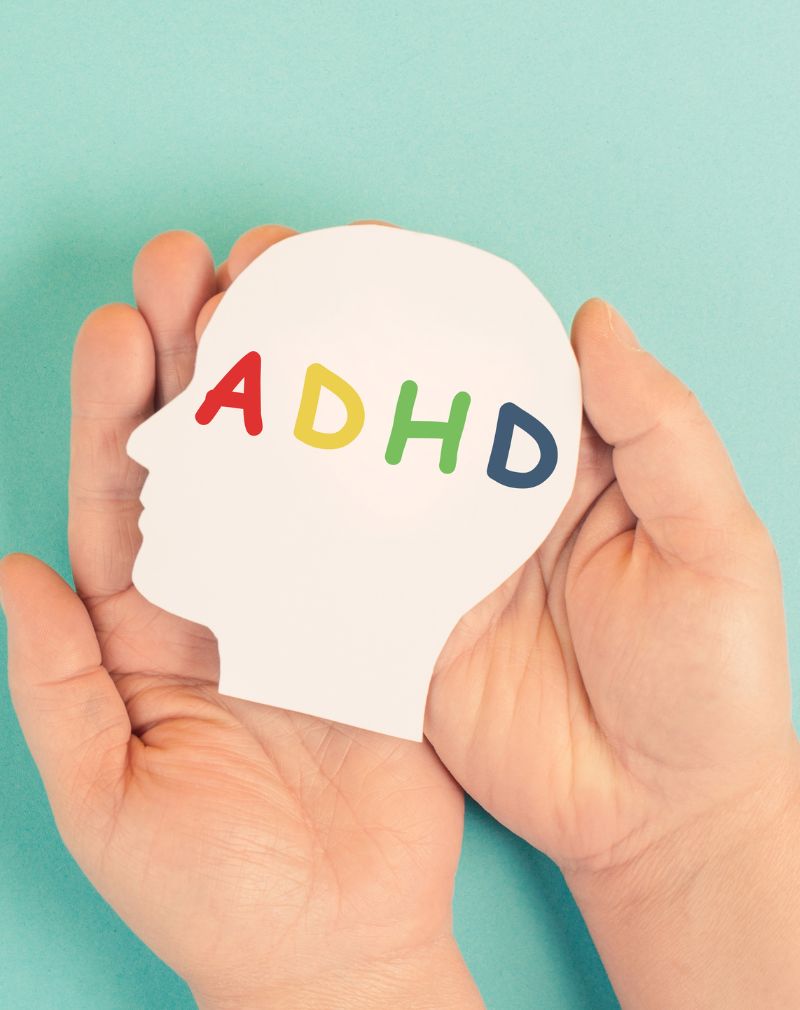Attention-deficit/hyperactivity disorder (ADHD) can affect women and girls differently than men and boys, and its symptoms can sometimes be overlooked or misdiagnosed. Identifying ADHD in women can be challenging, as many symptoms can overlap with other conditions like anxiety or depression. It often becomes more noticeable in adulthood when women are juggling multiple responsibilities.
How to identify ADHD in female
Diagnosis typically involves a thorough evaluation by a mental health professional, including a clinical psychologist or psychiatrist. They will consider the person’s medical history, behavior patterns, and may use standardized assessment tools
Here are some signs of ADHD in women, along with information on identifying it, understanding its impact on family life, when to seek professional help, and how psychologists can help manage it:
- Women with ADHD may struggle with staying focused, forgetfulness, and difficulty organizing tasks.
- While hyperactivity is often more noticeable in boys with ADHD, women may still experience restlessness, fidgeting, and difficulty sitting still.
- Women with ADHD may make impulsive decisions, interrupt conversations, and have difficulty waiting their turn.
- Chronic procrastination, difficulty completing tasks, and missing deadlines are common signs.
- Frequent episodes of mood swings, emotional sensitivity, and difficulty managing emotions can be prevalent.
- Problems with organization, time management, and maintaining routines may be evident.
- Difficulty estimating and managing time, leading to a constant sense of rushing or running late.
- Repeated difficulties in life due to ADHD symptoms can contribute to low self-esteem and feelings of inadequacy.
Impact on Family Life
ADHD can have a significant impact on family life. Women with ADHD may struggle with managing household responsibilities, childcare, and maintaining consistent routines, which can create stress within the family. Relationships may also be affected due to forgetfulness, impulsivity, and emotional dysregulation.
- Strained Relationships: Frequent forgetfulness, impulsivity, and emotional outbursts can strain relationships with spouses, partners, and children.
- Parenting Challenges: Mothers with ADHD may struggle with parenting tasks such as creating routines, staying organized, and maintaining consistency.
- Household Management: Difficulty with organization and time management can lead to a chaotic home environment.
- Stress and Conflict: ** Family members may experience stress and conflict as a result of the challenges posed by ADHD.
When to Seek Professional Help
If you suspect you or a loved one has ADHD, it’s important to seek professional help when:
- Symptoms of ADHD persistently interfere with daily functioning, relationships, and overall quality of life.
- ADHD symptoms significantly affect work performance, academic achievement, or career progression.
- ADHD-related behaviours are causing conflicts in personal or family relationships.
- ADHD-related challenges are leading to emotional distress, anxiety, or depression.
- Impulsivity or inattention is leading to safety concerns, such as accidents or reckless behavior.
How Psychologists Can Help
Psychologists can play a crucial role in managing ADHD in women by:
- 1. Diagnosis: Conducting comprehensive assessments to confirm ADHD and rule out other conditions.
- Psychoeducation: Providing information and education about ADHD to the individual and their family.
- Therapy: Offering psychotherapy, such as cognitive-behavioural therapy (CBT), to develop coping strategies, improve executive function skills, and manage emotional difficulties.
- Medication Management: Collaborating with psychiatrists to explore medication options when appropriate.
- Parenting Support: Offering guidance and support to parents with ADHD on managing family dynamics and routines.
- Workplace or Academic Support: Assisting individuals in advocating for accommodations and developing strategies for success in school or the workplace.
ADHD is a manageable condition, and with the right support and interventions, individuals can lead fulfilling lives and develop effective strategies to cope with their symptoms. It’s important to seek help when needed to address the challenges associated with ADHD effectively.
How Therapy can help
Women with ADHD can benefit from therapy for several important reasons:
- Diagnosis and Understanding: Therapy can help women receive a proper diagnosis for ADHD. Many women with ADHD go undiagnosed or misdiagnosed, leading to years of struggles. Therapy can help uncover the underlying issues and provide clarity.
- Education: Therapy provides an opportunity to learn about ADHD, its symptoms, and how it affects daily life. Understanding the condition is essential for managing it effectively.
- Skill Development: Therapy can teach practical skills and strategies to manage ADHD symptoms. This includes time management techniques, organizational strategies, and coping mechanisms to deal with challenges.
- Emotional Regulation: Women with ADHD may struggle with emotional dysregulation, mood swings, and impulsivity. Therapy can provide tools to manage these emotional aspects, improving overall emotional well-being and relationships.
- Self-Esteem: ADHD can impact self-esteem, leading to feelings of inadequacy and self-doubt. Therapy can address these issues and help individuals develop a more positive self-image.
- Coping Mechanisms: Women can learn healthy coping mechanisms for managing stress, anxiety, and frustration associated with ADHD.
- Medication Management: For those prescribed medication for ADHD, therapy can complement medication management. It can help individuals monitor medication effects, side effects, and make informed decisions about their treatment plan.
- Support and Validation: Therapy offers a supportive and non-judgmental space to discuss challenges and frustrations related to ADHD. Feeling understood and validated can be incredibly therapeutic.
- Improving Relationships: ADHD symptoms can strain relationships with family, friends, and partners. Therapy can provide tools to enhance communication, manage conflicts, and foster healthier relationships.
- Accountability: Regular therapy sessions can help individuals stay accountable for their goals and strategies for managing ADHD.
- Long-Term Success: Managing ADHD is a lifelong process. Therapy provides ongoing support and guidance, helping women adapt to changing life circumstances and challenges.
- Quality of Life: Ultimately, therapy can improve a woman’s overall quality of life by helping her develop the skills and strategies necessary to thrive despite the challenges posed by ADHD.
It’s important to note that therapy can be tailored to an individual’s specific needs and preferences. Some may find cognitive-behavioural therapy (CBT) or mindfulness-based approaches particularly helpful, while others may benefit from more structured coaching or support groups. The choice of therapy type should be made in consultation with a qualified mental health professional who specializes in ADHD.
Seeking the support of a psychologist is a brave step towards self-improvement and overcoming challenges that may seem insurmountable alone. Psychologists are skilled in offering guidance, support, and effective strategies to help you build courage and navigate through psychological barriers. If you find that a lack of courage is impacting your well-being or limiting your potential in personal and professional realms, it’s time to consider reaching out for professional assistance.
At the American Wellness Center in Dubai Healthcare City, our Psychology department is dedicated to providing you with the support and evidence-based techniques you need to foster courage and resilience. Our team of trained professionals is here to guide you through the process, helping you to overcome obstacles and enhance your overall quality of life. Contact us today to begin your journey towards a more courageous and empowered self.



